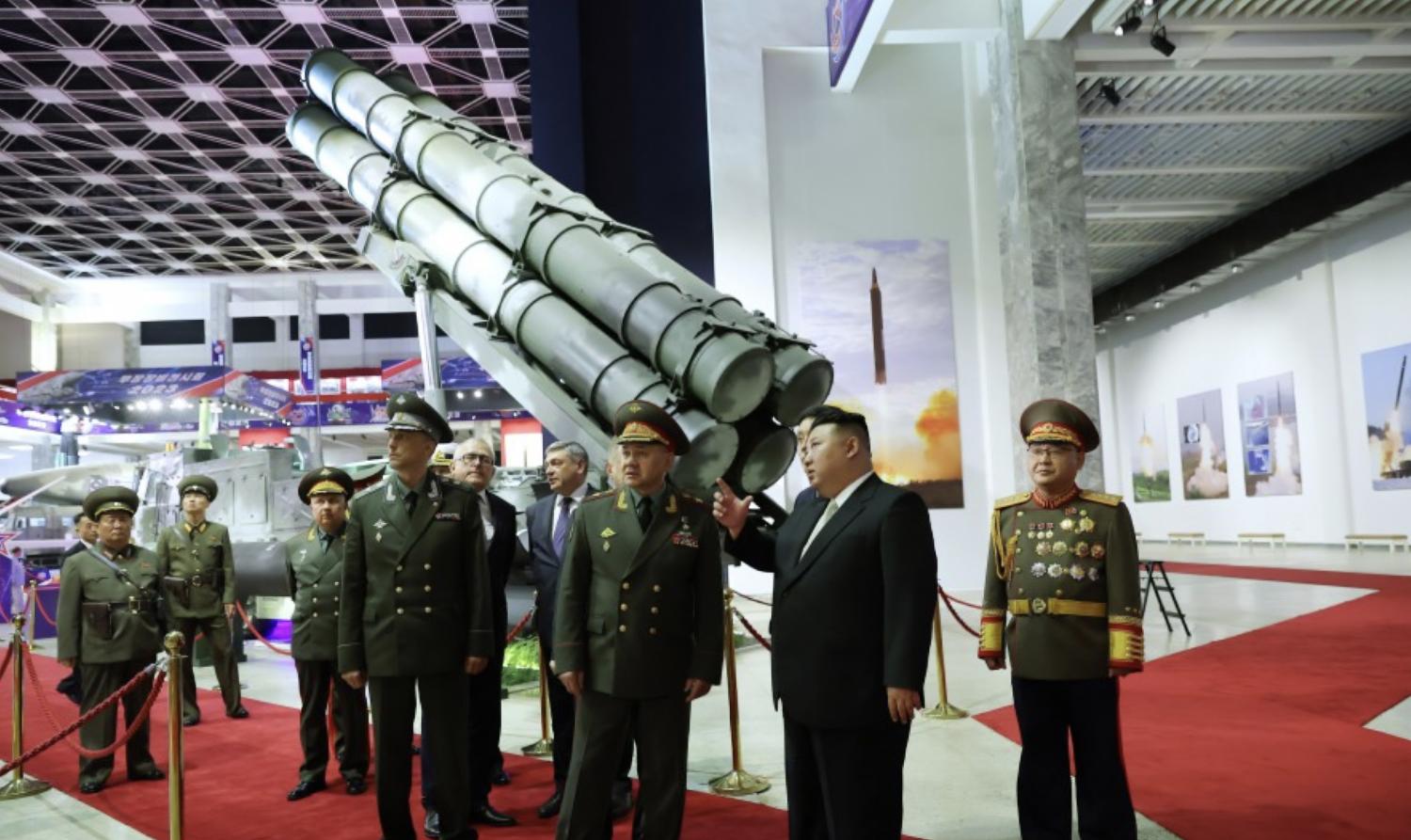Recent steps towards closer Russia-North Korea relations have been met with concern and apprehension in the United States and South Korea.
In September, North Korean leader Kim Jong-un pledged support for Russia’s “fight against imperialism” in Ukraine, describing relations with Moscow as Pyongyang’s “top priority”. And Russian Foreign Minister Lavrov enthused during his October visit to Pyongyang that bilateral ties had reached a “qualitatively new, strategic level” and decried the purportedly “unconstructive and dangerous” actions of the US and its allies.
US Secretary of State Antony Blinken sharply criticised the “growing and dangerous” military cooperation between Russia and North Korea, warning that this was in breach of UN Security Council resolutions.
Blinken’s concern is entirely warranted, yet experience would suggest that gushing portrayals by Moscow and Pyongyang of their renascent relationship should be treated cautiously.
The historical context is important. Relations between Russia and North Korea have a complicated and uneven past, marked by unfulfilled expectations.
Bilateral ties were strong in Soviet times. This reflected the Soviet Union’s key role in founding the North Korean state under Kim il-sung in 1948, and then Moscow’s role as major supplier of food, energy and weapons to Pyongyang throughout the Cold War.
But with the dissolution of the USSR in 1991, relations languished, as the substantial flow of Soviet economic and military assistance to North Korea ended.
Efforts to revive bilateral ties over the past quarter century, starting with Russian President Vladimir Putin’s visit to Pyongyang in July 2000, have proved fitful and ineffective.
Plans for upgraded transport and energy infrastructure, including new railway and gas pipelines linking Russia and South Korea through North Korea, have come to naught – in part victims of the twists and turns of political relations between the two Koreas and their external supporters. One of the few visible signs of economic cooperation between Russia and the DPRK has been the employment of North Korean labourers on agricultural and construction projects in Russia's Far East, which has a labour shortage.
But Russia’s invasion of Ukraine last year proved a turning point.
Expending huge quantities of munitions in its war in eastern Ukraine, and with its own sanctions-hit defence industry struggling to meet demand, Russia is eager to draw on any available source of military equipment – and North Korea fits the bill.
North Korea is believed to have large stocks of compatible equipment and munitions needed by Moscow to sustain its war effort, notably artillery shells and rockets.
Russian Defence Minister Shoigu visited Pyongyang in July, taking part in commemorative activities marking the 70th anniversary of the Korean War armistice. (Also present was Li Hongzhong, Vice Chairman of the Chinese National People’s Congress and Politburo member.)
Shoigu’s negotiations in Pyongyang evidently led to the transfer of large quantities of North Korean weapons and munitions to Russia. US reports indicated around 1000 containers of military material were detected leaving North Korea, and that there were several other shipments.
What does North Korea want in return?
Russian food and fuel must be high on the North Korean list. But the itinerary for Kim’s visit to the Russian Far East in September points to other likely items on Pyongyang’s shopping list.
Notably, Kim was hosted by Putin at Russia’s space launch facility at Vostochny. The North Korean leader was then hosted by Shoigu at the Gagarin aircraft factory in Komsomolsk-on-Amur, where advanced Russian fighter jets are manufactured. He also toured the Russian Pacific Fleet’s facilities in Vladivostok.
Pyongyang is keen to acquire Russian advanced weaponry (such as aircraft and air defence equipment) and satellite technology. Pyongyang also no doubt covets Russian assistance in developing its ballistic missile program.
What next, then?
Concern over closer Russia-North Korea ties is well-founded but should be tempered with scepticism. The upsurge in relations is driven by a clear but narrow convergence of interests and needs. It’s a transactional relationship, not one rooted in mutual trust.
For Russia, circumstances now make closer ties with North Korea important, yet Moscow is mindful of Pyongyang’s unpredictability.
And while Pyongyang will see closer ties with Moscow as offsetting its near-total dependence on China, in truth, the ever-closer alignment between Moscow and Beijing effectively precludes Pyongyang from playing off its larger neighbours against each other.
In Pyongyang, Shoigu proposed joint Russia-North Korea-China naval exercises, implying closer trilateral security cooperation might be in prospect. And Lavrov in October mooted trilateral talks on Korean Peninsula security.
If they transpire, such developments would be concerning. But Russia will tread carefully, and likely take its cue from Beijing. Russia’s war in Ukraine, and consequent estrangement from the US and Europe, has deepened its political and economic dependence on China. Beijing won’t want Moscow to provide military assistance that might encourage provocative military action by an emboldened Kim.
Neither China, nor Russia, has an interest in unleashing instability on the Korean Peninsula, bringing them into direct confrontation with the US and its ROK and Japanese allies.
Caveats notwithstanding, the recrudescence of Russia-North Korea ties adds a further unwelcome element of complexity and uncertainty to the already febrile security environment in Northeast Asia. But it will reinforce the emergent security rapprochement underway between Seoul and Tokyo, nurtured by the US, and driven by their shared concern about Beijing’s more assertive foreign and security posture.

